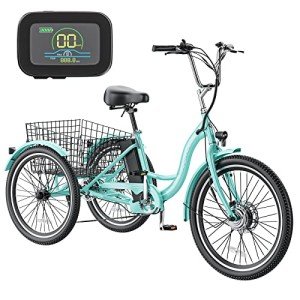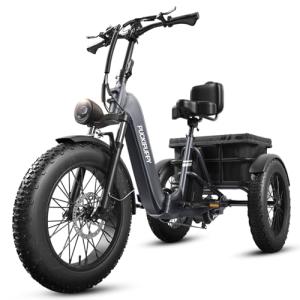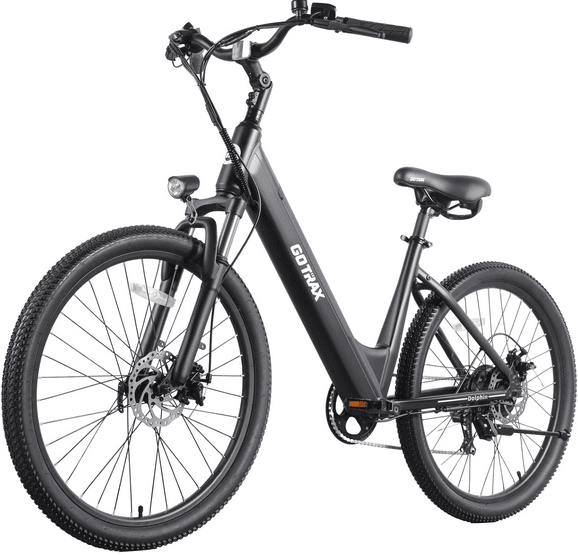Are electric bikes license-free? If you're considering joining the e-bike revolution, it's essential to understand the legalities and requirements surrounding licensing. With the rising popularity of electric bikes, many riders are curious about whether they need a license to operate these eco-friendly vehicles on public roads.
In most countries, electric bikes typically fall under the same category as traditional bicycles. This means that in many cases, you don't need a license to ride an electric bike. However, specific regulations may vary from one jurisdiction to another, so it's crucial to familiarize yourself with the rules in your area.
Factors such as motor power, maximum speed, and pedal assistance can also affect the licensing requirements for electric bikes. Some regions may have restrictions on the power output or maximum speed of electric bikes to qualify as license-free.
Before riding an electric bike, ensure you research your local laws and regulations. Understanding the legal requirements will not only keep you compliant but also enhance safety for yourself and others on the road.
So, whether you're planning a leisurely ride or a daily commute, gaining clarity on the license-free status of electric bikes is a crucial step in embarking on your two-wheeled adventure.
Different types of electric bikes
Electric bikes come in various forms, each designed for different purposes and preferences. Understanding the different types of electric bikes can help you choose the one that best suits your needs.
1. City E-Bikes: These electric bikes are perfect for urban commuters. They are designed with lightweight frames, narrow tires, and features like fenders and lights. City e-bikes provide a comfortable and efficient way to navigate through city traffic.
2. Mountain E-Bikes: If you're an adventure enthusiast who enjoys off-road trails, mountain e-bikes are for you. These bikes feature robust frames, wide tires, and powerful motors, enabling them to tackle challenging terrains with ease.
3. Folding E-Bikes: Folding e-bikes are compact and portable, making them an excellent choice for those with limited storage space or who frequently travel with their bikes. These bikes offer convenience without compromising on performance.
4. Cargo E-Bikes: Cargo e-bikes are designed to carry heavy loads, making them ideal for transporting groceries, small items, or even children. With sturdy frames and powerful motors, these bikes provide a sustainable alternative to traditional delivery methods.
Benefits of Electric Bikes:
Electric bikes offer numerous benefits that make them an attractive option for many riders. Here are some advantages of using electric bikes:
1. Eco-Friendly: Electric bikes produce zero emissions, making them an environmentally friendly transportation option. By choosing an electric bike over a car, you can contribute to reducing air pollution and carbon footprint.
2. Health and Fitness: Contrary to popular belief, electric bikes still require physical effort. The pedal assist feature provides a boost while you pedal, making it easier to tackle hills and longer distances. Regular e-bike riding can help improve cardiovascular health and overall fitness levels.
3. Cost Savings: Electric bikes are significantly cheaper to operate and maintain compared to cars or motorcycles. With no fuel costs and minimal maintenance requirements, e-bikes can save you money in the long run.
4. Convenience: Electric bikes offer the convenience of a motorized vehicle without the hassle of traffic congestion or finding parking spaces. You can navigate through crowded streets and reach your destination faster, especially during peak hours.
Legalities of Electric Bikes:
While electric bikes are generally license-free, it's important to be aware of the legalities surrounding their use. Here are a few key aspects to consider:
In most countries, electric bikes are classified as bicycles, and riders do not require a license to operate them. This means that anyone, regardless of age or driving experience, can ride an electric bike without obtaining a separate license.
However, it's essential to note that individual jurisdictions may have specific regulations and restrictions. The power output, maximum speed, and pedal assistance level of the electric bike can influence the license-free status. It's crucial to research and understand the laws in your area to ensure compliance.
Age and speed restrictions for electric bikes
While electric bikes may not require a license, age and speed restrictions are often in place. These restrictions vary by jurisdiction, and it's crucial to familiarize yourself with the specific requirements.
For example, some regions may require riders to be a minimum age of 16 or 18 to operate an electric bike. Additionally, there may be restrictions on the maximum speed an electric bike can reach to qualify as license-free. These restrictions are in place to ensure the safety of riders and other road users.
Insurance requirements for electric bikes
In most cases, electric bikes do not require insurance coverage. However, it's always a good idea to check with your insurance provider to see if they offer any optional coverage for your e-bike. Some insurance companies may offer theft or damage coverage for electric bikes, providing you with additional peace of mind.
Safety Regulations for Electric Bikes:
While electric bikes offer an enjoyable and efficient mode of transportation, it's important to prioritize safety. Here are some safety regulations to keep in mind:
1. Wear a Helmet: Wearing a helmet is crucial for your safety, regardless of the legal requirements in your area. A helmet can protect you from head injuries in the event of an accident.
2. Follow Traffic Rules: Electric bikes should follow the same traffic rules as bicycles. Obey traffic signals, yield to pedestrians, and use designated bike lanes whenever possible. Avoid riding on sidewalks or pedestrian-only areas unless permitted.
3. Use Lights and Reflectors: Ensure your electric bike has functioning lights and reflectors to enhance visibility, especially during low-light conditions. This is essential for your safety and helps other road users see you.
4. Maintenance and Inspections: Regularly maintain your electric bike to ensure it's in good working condition. Check the brakes, tires, and lights regularly, and address any issues promptly. Periodic inspections can help identify potential problems before they become safety hazards.
Tips for Riding an Electric Bike Legally and Responsibly:
To ensure a safe and enjoyable riding experience, here are some tips for riding an electric bike legally and responsibly:
1. Know the Laws: Familiarize yourself with the local laws and regulations related to electric bikes. Be aware of the speed limits, age restrictions, and any other specific requirements applicable to your area.
2. Ride Defensively: Always be aware of your surroundings and anticipate the actions of other road users. Ride defensively, be cautious at intersections, and signal your intentions to other drivers.
3. Be Visible: Wear bright-colored clothing and use reflective accessories to make yourself more visible to other road users. This is especially important during low-light conditions or when riding in areas with heavy traffic.
4. Be Mindful of Pedestrians: Yield to pedestrians and give them the right of way. Slow down when approaching crowded areas and be respectful of pedestrians sharing the same space.
5. Practice Basic Bicycle Safety: Follow basic safety practices such as using hand signals, maintaining a safe distance from vehicles, and avoiding distractions while riding.
Conclusion
Electric bikes offer a convenient, eco-friendly, and enjoyable way to navigate through city streets or embark on off-road adventures. In most countries, electric bikes are license-free, making them accessible to riders of all ages and driving experience levels.
However, it's essential to understand the specific regulations and requirements in your area. Factors such as motor power, maximum speed, and pedal assistance can influence the license-free status of electric bikes. Additionally, age restrictions, insurance considerations, and safety regulations should be taken into account for a safe and legal riding experience.
By familiarizing yourself with the legalities surrounding electric bikes, you can confidently embrace this sustainable mode of transportation and embark on your two-wheeled adventure. Remember to prioritize safety, follow traffic rules, and ride responsibly to ensure an enjoyable experience for yourself and others on the road. Happy riding!
DISCLAIMER
This document is provided for general information purposes only and should not be relied upon as providing legal advice, technical, or specific operational guidance to the reader, whether as to the practices described in the document or the applicable legal requirements and regulations. Sperry Madison., dba Just Electric Bikes, expressly disclaims any responsibility for liability arising from or related to the use or misuse of any information in this document.





